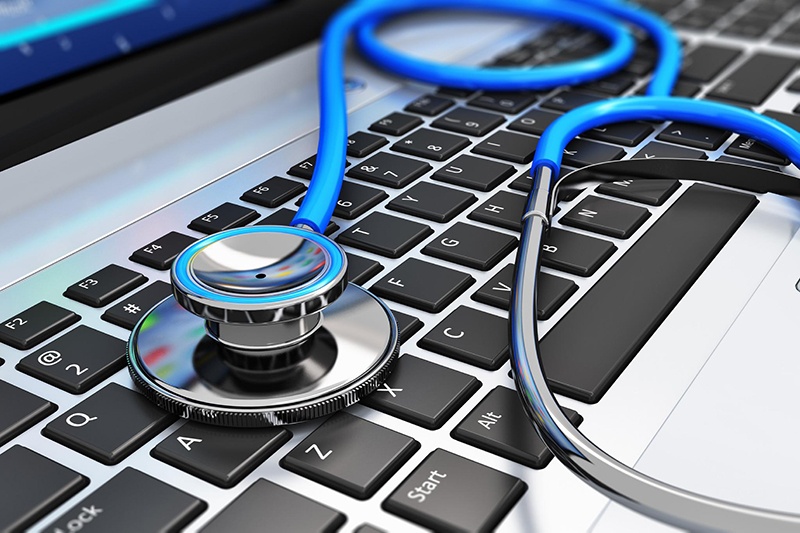
As cyber attacks become more sophisticated and increasingly focused on healthcare, security concerns are growing among hospital systems and healthcare organizations. In fact, you might recall some attention-grabbing headlines from 2016 about data breaches in major hospital systems. Healthcare was hit so hard by hackers in 2016 that the Identity Theft Resource Center (ITRC) reported that healthcare systems exposed more Social Security numbers than any other industry.
But why is healthcare at such a high risk for IT security breaches? For starters, the ITRC found that healthcare was more susceptible to employee error or negligence than other sectors. On top of that, the industry as a whole was hit hardest by hacking, phishing, and skimming attacks. Improper employee training, outdated technology, and a lack of proper security testing can put your data at risk for security problems that potentially harm your patients and your organization.
Top Healthcare IT Security Concerns
If you’re thinking of updating your Healthcare IT security, it’s important to identify your potential weaknesses from the get-go. Here are some top healthcare security concerns that should be on your radar:
-
Connected medical devices. As healthcare technology changes, many new medical devices are connected to one another wirelessly. While connectivity can help physicians and nurses tap into useful data, keep patient records up to date, and (in some cases) improve outcomes, the opportunity for a data hack may increase. It’s important to put security controls in place to protect Internet of Things (IoT) medical devices, such as ensuring all devices are connected only to the healthcare organization’s protected network, and setting up authentication and encryption communication rules.
.png?width=300&name=496c3b27b21b42258436f5e1861ce01d%20(1).png)
-
Mobile usage. There are thousands of new cloud-based applications and medical software on the market right now that improve connectivity and patient clinician interaction while storing patient health records, tracking ICD-9 and ICD-10 codes, and monitoring emerging symptoms. While these systems can help streamline clinical protocols and improve patient care, they may pose a risk to your security measures. Many employees are familiar with security protocols on site, but it’s easy to let security slip when you can access data from a mobile device anywhere and anytime. If you plan to move to a cloud-based system, employee training is key to protecting against a data hack.
-
Phishing and ransomware. These email attacks have been leveraged against healthcare organizations for years — and they are still a top security risk for healthcare companies. Be sure to train your employees to spot signs of phishing and ransomware emails, and make sure they know what to do if they identify one or accidentally open a suspicious link or document.
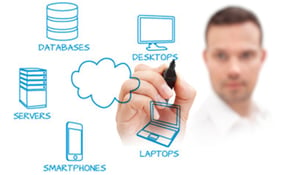
-
Gaps in encrypted communication. Encryption is a great way to protect both on-premise users and external cloud-based devices and applications. To put it simply, encryption is the act of scrambling communication to prevent people other than the intended recipient from reading it. However, some sophisticated hackers have learned to hide undetected within encrypted data. According to a Ponemon Institute report called Hidden Threats in Encrypted Traffic, in nearly half of cyber attacks in the previous 12-month period, malware entered organizations by hiding under encryption. In order to avoid these network attacks, healthcare organizations can add an extra layer of security to monitor encrypted traffic and detect any blind spots where hackers could access your data. Plus, with this added layer of security, outsourced healthcare IT staff can analyze network traffic more easily to spot and decrypt suspicious behavior. The ability to do this will bolster security and ensure compliance as security threats are on a rapid rise in the healthcare industry.

-
Your employees. When it comes to IT security, employee training is of the utmost importance. Lack of training can lead to serious security breaches through phishing scams, improper mobile use, and connected devices. Be sure your employees are aware of how data breaches happen by conducting regular security training and compliance screenings. Here are some things to keep in mind:
- Send quarterly or even monthly reminders to employees with information that will help them spot phishing attacks and report suspicious messages properly.
- Make sure employees know what type of emails they should expect to receive from your organization when it comes to data requests or other proprietary information.
- Provide regular training and assessments to further educate your staff on security best practices.
Medical practices are typically focused on patient health, but in today’s world, a second focus on cyber health is a must — it may feel like a distraction, but it’s all in service of protecting your patients.
If you need support in ensure the cyber health of your organization. Contact Us today for a free consultation!
Related Articles:
Ransomware Equals a Data Breach - Let's explore why your business needs to utilize an inclusive approach that combines cybersecurity with full compliance.
About CITE Technology
Cite Technology Solutions strives to provide the very best in IT solutions.
We provide comprehensive IT solutions for small and mid-sized organizations with complex needs. Offering 24/7 Tech Support, Remote Support and Cloud Storage. We specialize in data management, medical imaging, HL7 interfacing, and HIPAA compliance.

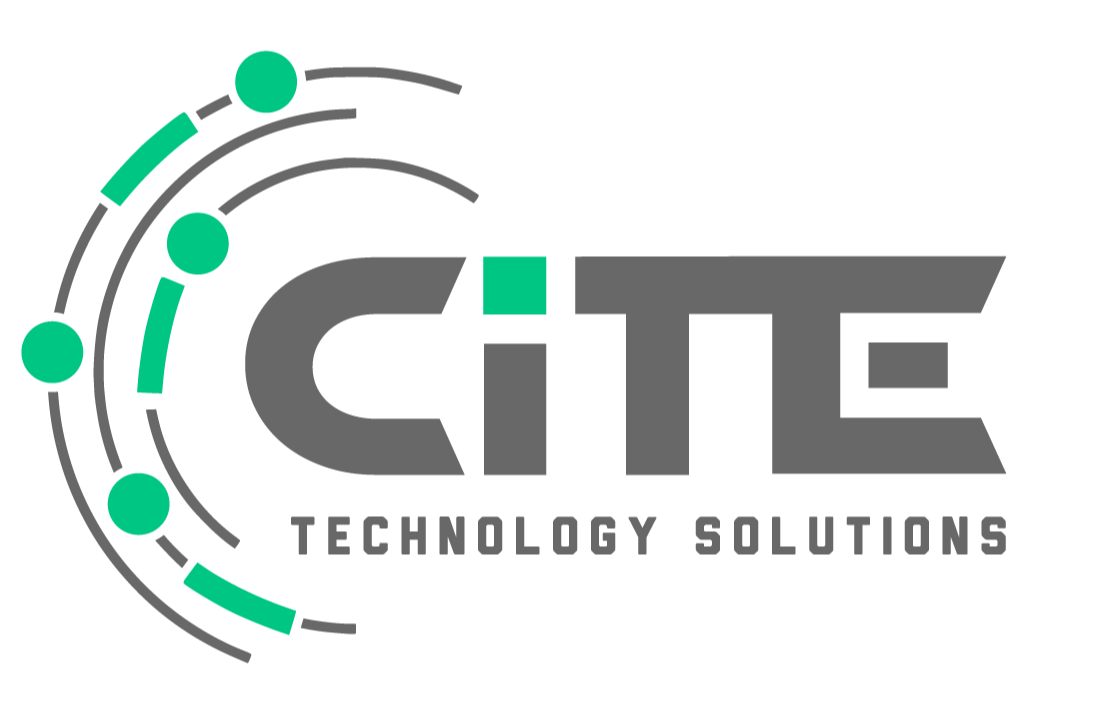

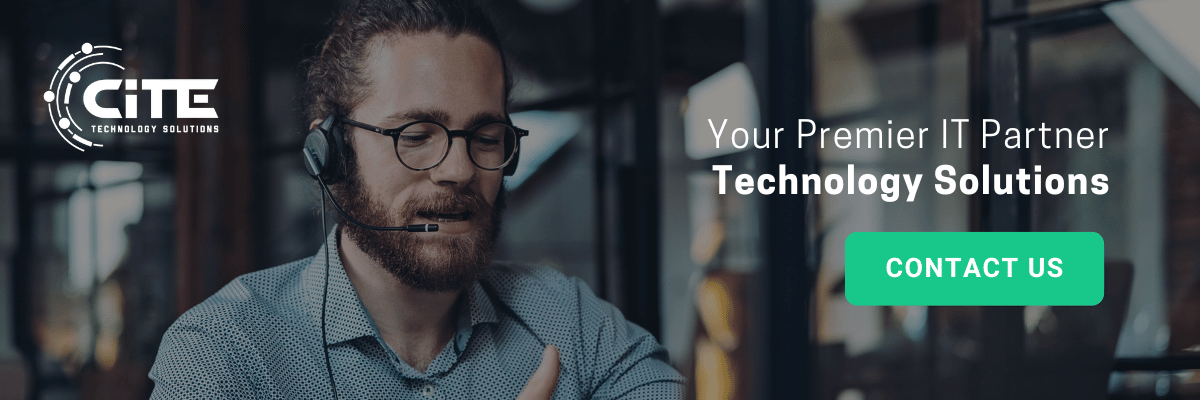
.png)

